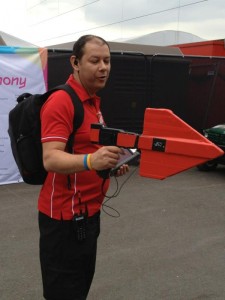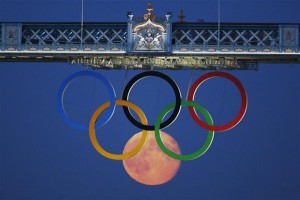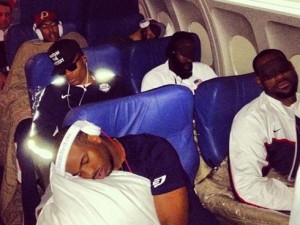The Pew Research Center has done a study on the Summer Olympics in London and U.S. viewership and the numbers are truly amazing, and must make the bean counters at NBC very happy indeed since it invested $1.12 billion for the broadcast rights.
According to the report 78% of Americans were watching the game either on broadcast television, online or on social media. TV is head and shoulders above any other option as the most popular viewing medium with 73% watching the big screen.
The approval ratings are very high as well, with 76% giving the broadcasts either an excellent (29%) or good rating (47%) with 13% said it was fair and 5% said it was poor. Looks like the “vocal minority” (as NBC execs called them) criticizing the games and the broadcast schedules on Twitter didn't keep their friends from watching.
Google gets $22.5 million fine over privacy breakdown
The Federal Trade Commission has come down hard on Internet search giant Google, hitting the company with a $22.5 million fine, the largest ever from the FTC, for its manipulation of Apple’s Safari browser.
Google has developed a method for tracking people Safari users and gather data on their activities, even though the company had promised not to do anything along this line. The move violated Google’s settlement with the FTC on a different issue, it concluded.
I wonder how this will impact Google’s current testing of using information garnered from users’ gmails to help come up with search results. I know that if this becomes a mainstream feature I am off gmail.
Nokia sheds app unit- puts more eggs in Microsoft’s basket
Nokia is parting way with its QT app tools unit, agreeing to sell the unit to Digia Oyj, Bloomberg reported. Nokia purchased the tool company back in 2008 when it needed its expertise to help create apps for two operating systems that Nokia owned at that time — MeeGo and Symbian.
It has since curtailed those operating system efforts and has been focusing on delivering phones that run on Microsoft’s operating systems. With that in mind it can now leverage the ecosystem that Microsoft is growing in terms of app development without a self funded effort.
Android and iOS dominate smartphone OS
The latest report from market research firm International Data Corp. s
hows that between Google’s Android and Apple’s iOS operating system the two own 85% of the smartphone OS market. I don’t think that this comes as much of a surprise to anyone, but it is great to see hard numbers on the issue.
Overall in the second quarter of 2012 IDC found that Android phones had 104.8 million units shipped good for a 68.1% market share while Apple’s iOS had 26 million iOS products shipped, good for a 16.9% share. Samsung appears to be the big winner, accounting for 44% of all Android phones in the second quarter of this year. BlackBerry came in third at 7.4 million units and a 4.8% market share.
Facebook settles privacy issue with FTC
The Federal Trade Commission has reached a final settlement with Facebook over what users’ personal data Facebook can expose. The company will now need an explicit ‘opt in’ from the user before it can change the types of information that it will make public. Facebook will also face an audit every other year for the next 20 years to ensure compliance.
Apple vs. Samsung Week 2
Nothing earth shattering has come out of this lingering case. It looks like an iPhone, it does not look like an iPhone. Does Samsung’s products confuse consumers or are they already confused? One interesting piece of information was the total iPhone sales in the platforms five years of existence. In the US market the company has sold 85 million iPhones, good for a hefty $50 million. It sold 34 million iPads in the US market in the last two years, good for $19 billion in revenue. It appears Apple warned Samsung in 2010 that it believed that Samsung was infringing on Apple patents and that it wanted between $30-$40 per device in licensing fees.
Smartphones pay off for Microsoft, just not how you would expect
Microsoft is still seeking to establish a major presence in the smartphone space, trailing Android, iOS and even Symbian-based devices, but if a report from Trefis is correct, it still rakes in the big dollars in the smartphone market.
The reason is patents, and some of the most successful players in the smartphone space including Samsung and HTC, pay Microsoft a bundle in royalty payments each quarter. According to a piece in Yahoo news, Microsoft made approximately $792 million in the second quarter of 2012 just from the two companies mentioned.











